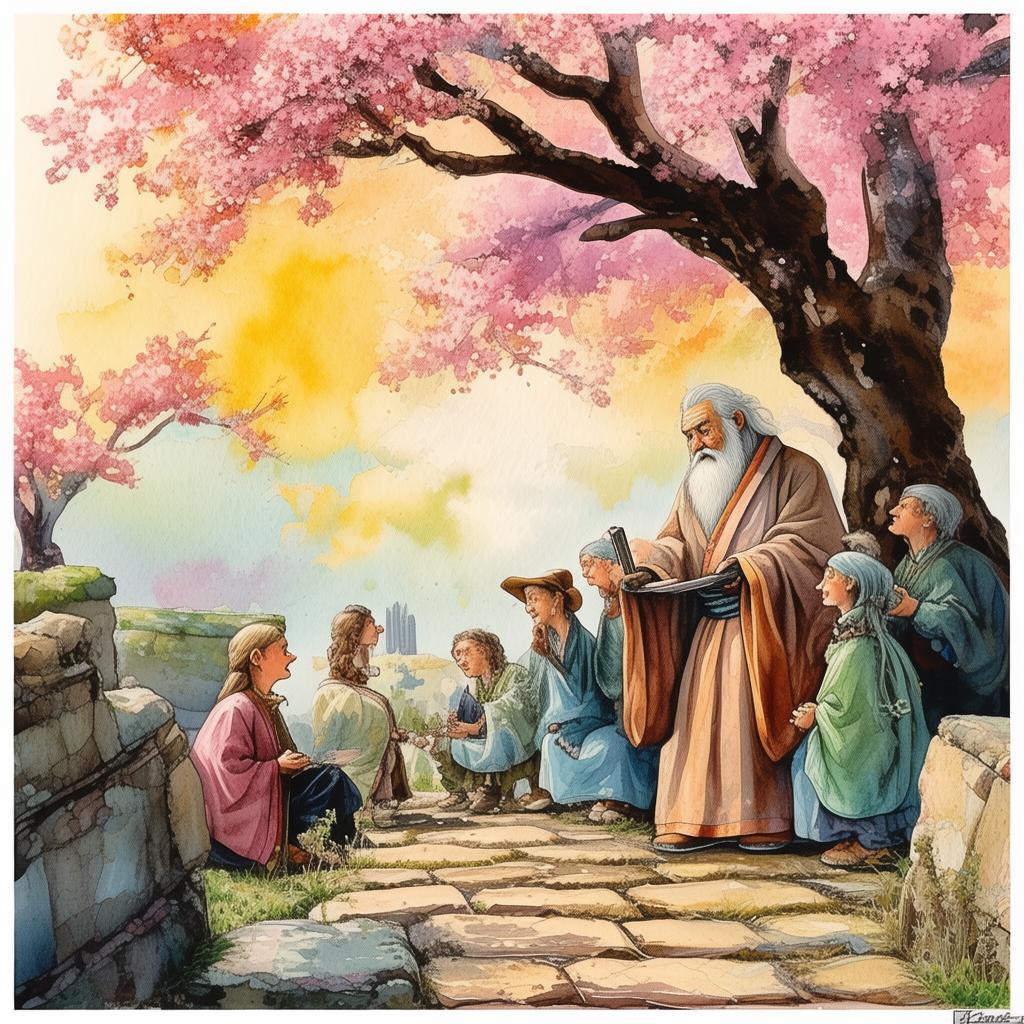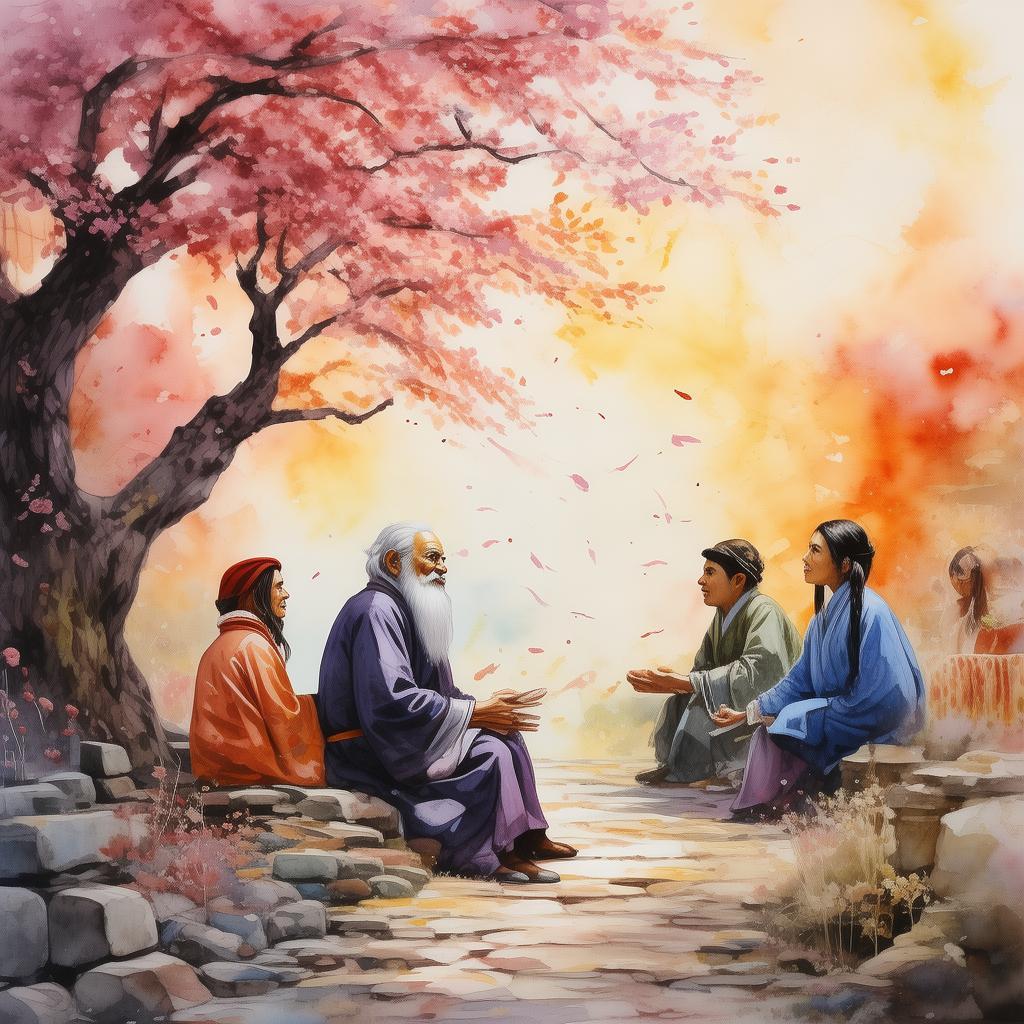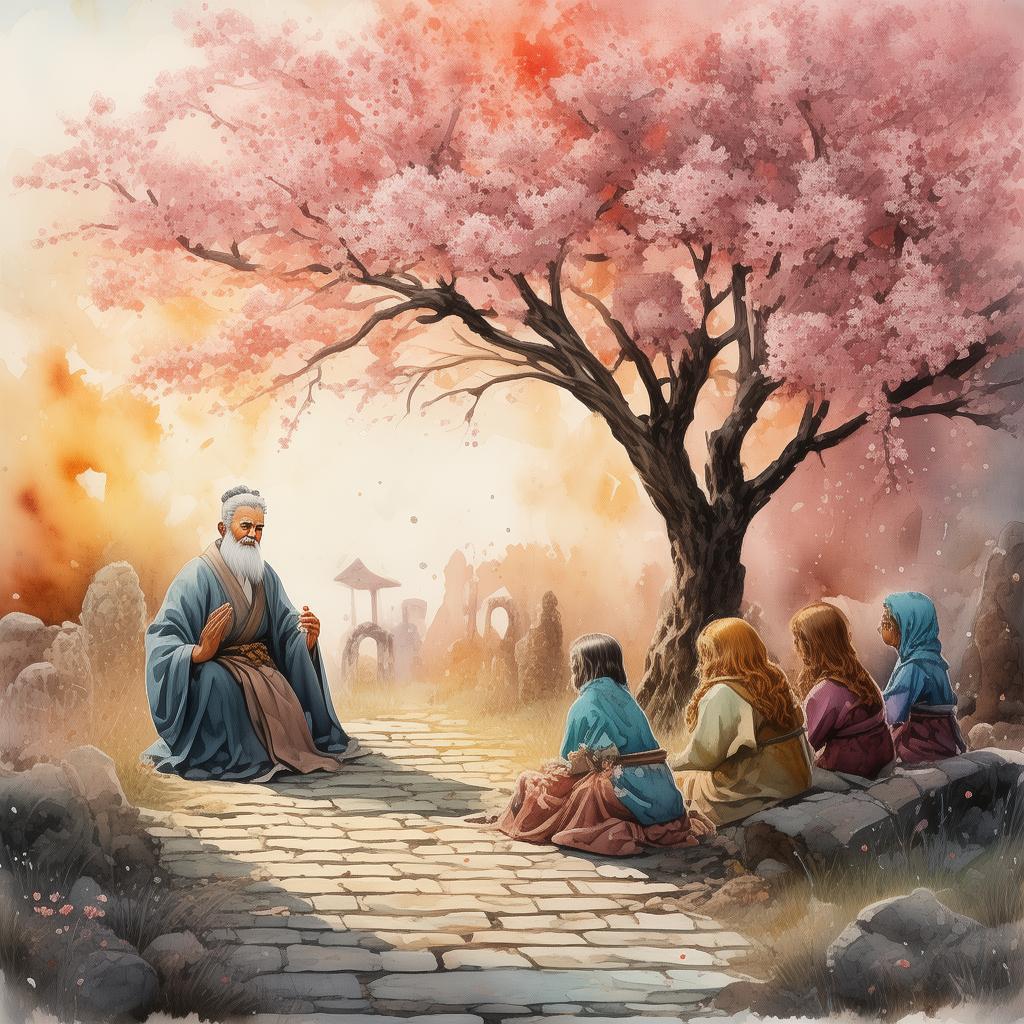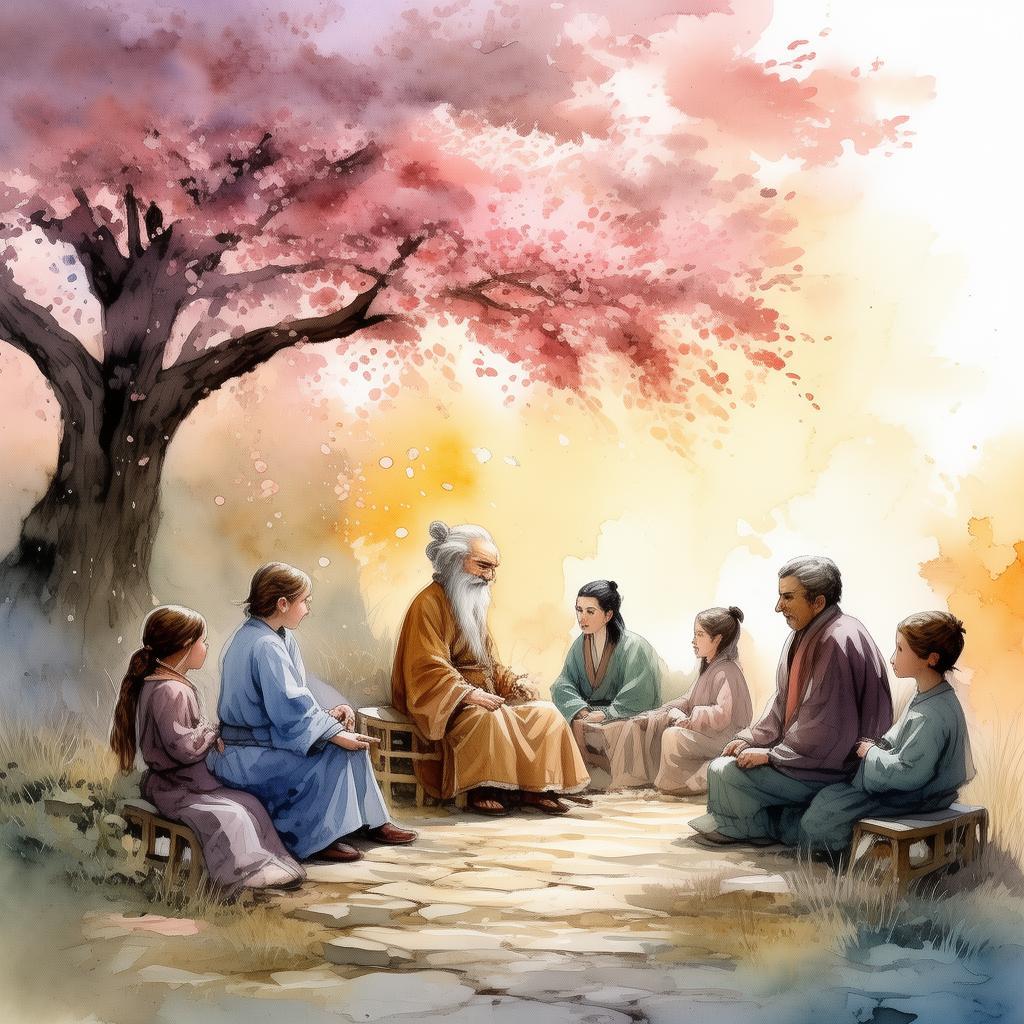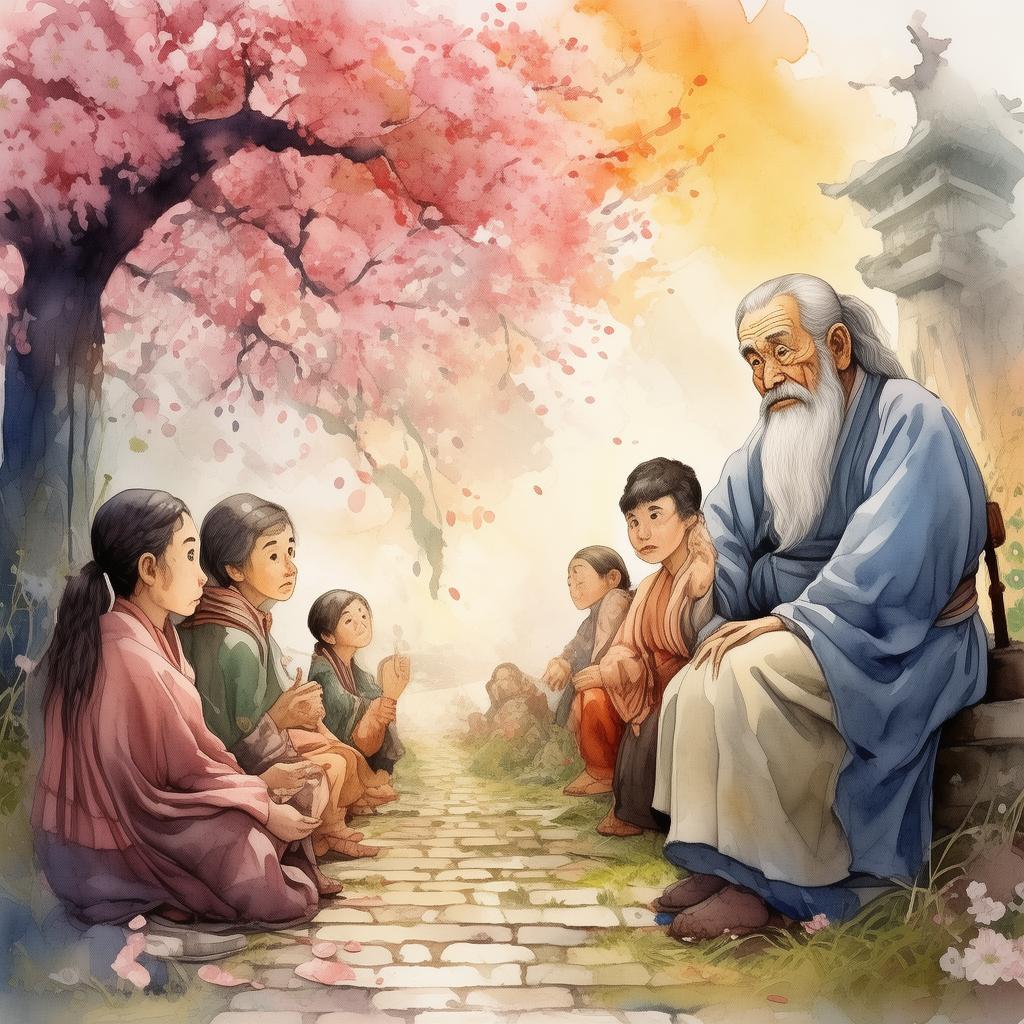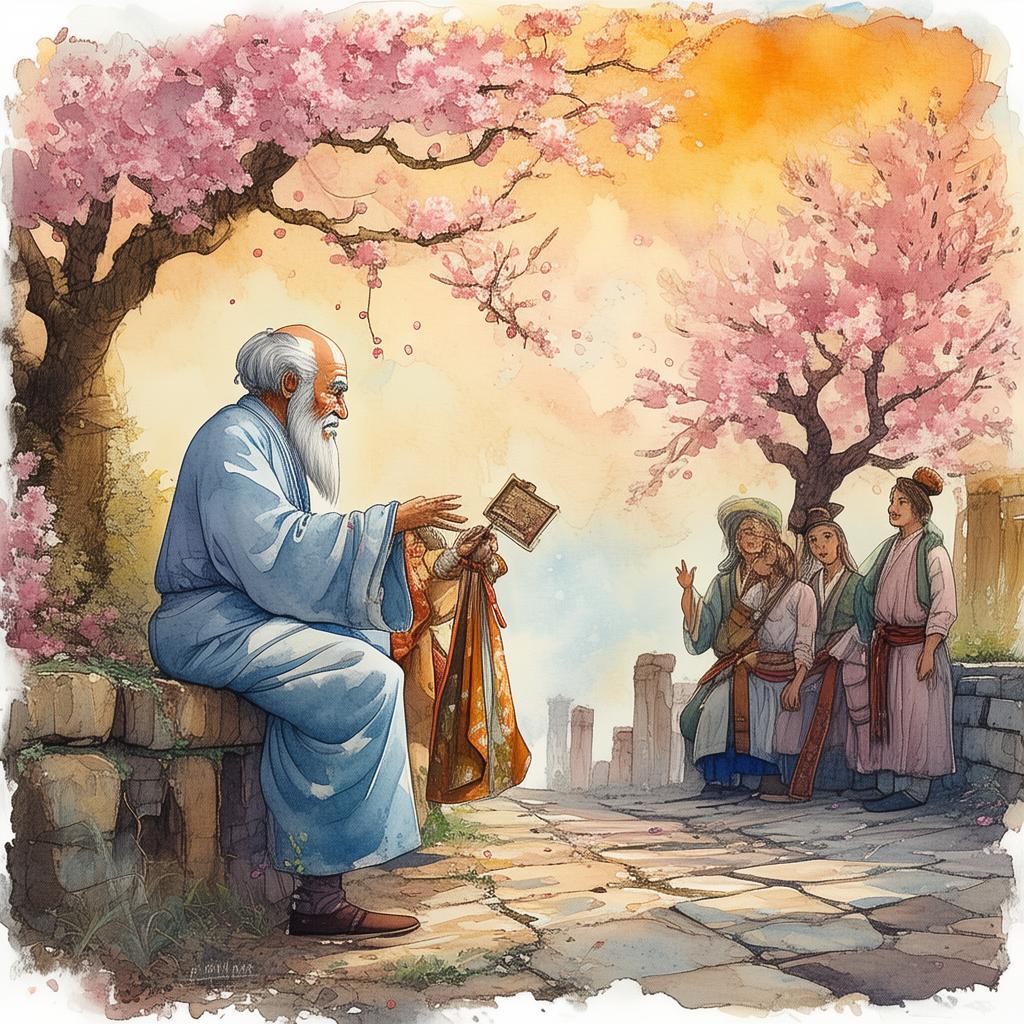The Scholar's Dilemma: A Quest for Balance
In the ancient land of Lingxia, where the wisdom of the ages was woven into every fiber of existence, there lived a young scholar named Mei. She was known throughout the land for her unparalleled intellect and her deep understanding of the ancient idioms that guided the lives of her people. Mei's quest was not for knowledge for its own sake, but for the future of her kingdom, which hung in the balance.
The kingdom of Lingxia was facing a great crisis. A mysterious illness had begun to spread, affecting the crops and the livestock, threatening the very survival of the people. The scholars of Lingxia had sought the ancient texts, hoping to find a cure, but to no avail. It was then that an old, wise scholar, known as Master Hong, revealed a secret to Mei. The cure lay not in herbs or potions, but in the solution to a riddle that had been lost to time.
The riddle was simple on the surface: "Two idioms, one truth, which should you choose?" But it was the choices that were complex. The first idiom was "The early bird catches the worm," which suggested that the answer lay in quick action and preparation. The second was "Look before you leap," which emphasized caution and foresight.
Mei knew that the fate of her kingdom rested on her ability to choose the correct idiom. She began her journey, traveling to the far reaches of Lingxia, seeking the wisdom of the elders and the guidance of the sages. Along the way, she encountered many who believed they knew the answer, but each had their own interpretation.
One day, Mei met an old hermit living in a cave deep within the mountains. The hermit was a master of the ancient idioms and had lived a life of solitude, seeking the truth behind the words. He listened intently as Mei recounted her quest.
"The early bird catches the worm," the hermit said, "but the wise man looks before he leaps. The answer is not in choosing one over the other, but in understanding the balance between them."
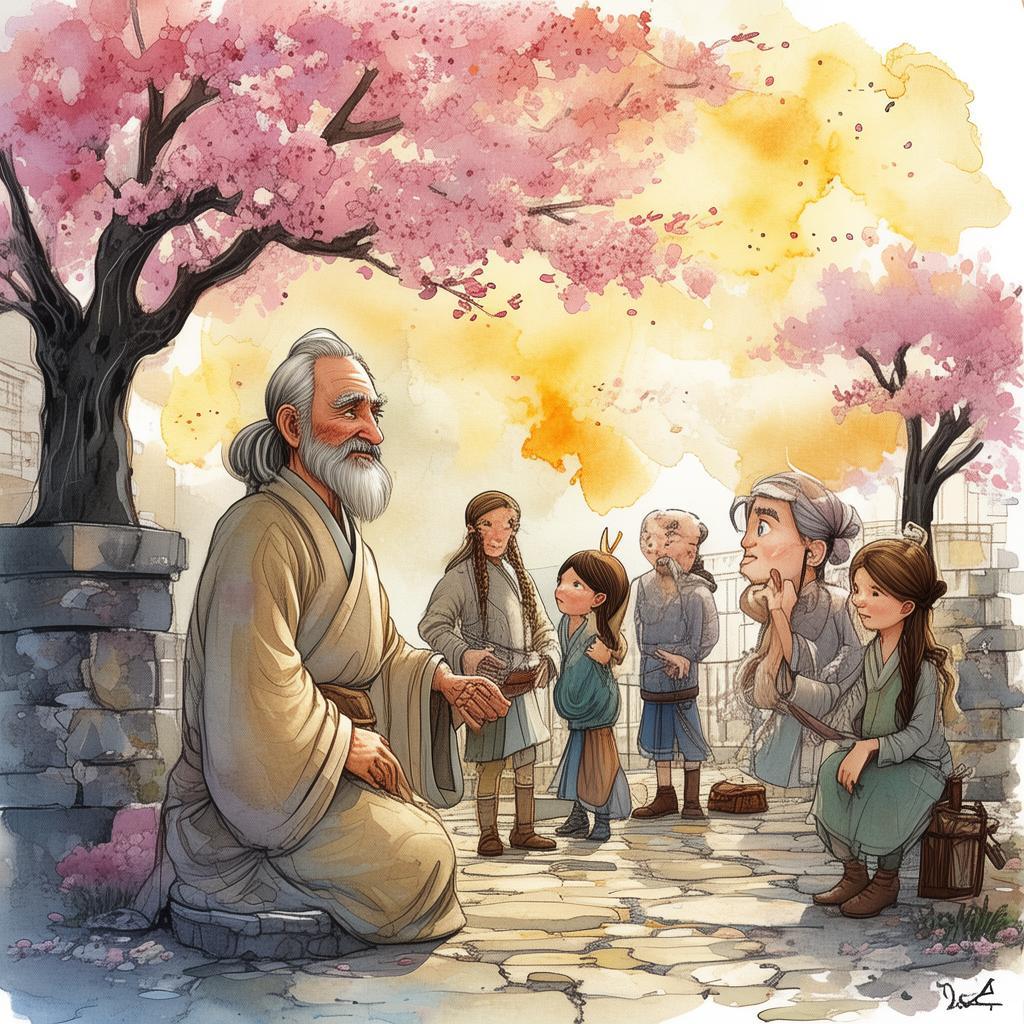
Mei was puzzled. "But which one is the right choice for Lingxia?"
The hermit smiled, his eyes twinkling with ancient knowledge. "The answer lies in the heart of the one who seeks it. If you choose wisely, the balance will be restored."
With the hermit's words echoing in her mind, Mei continued her journey. She visited the marketplace, where she saw the struggles of the people, their desperation for a solution. She met a young farmer who had lost his crops, a mother who had seen her child fall ill, and a wise elder who had watched his kingdom fall into despair.
Each person's story weighed heavily on Mei's heart, and she realized that the choice was not about the idioms themselves, but about the people of Lingxia. She needed to find a way to balance the needs of the present with the hope for the future.
One night, as Mei sat by a campfire, reflecting on her journey, she had a revelation. The balance between the idioms was not about choosing one over the other, but about combining their wisdom. The kingdom needed both the quick action of the early bird and the foresight of the wise man.
With this new understanding, Mei returned to the capital, where she presented her findings to the king. She proposed a plan that would involve both immediate action and long-term planning. The king, seeing the wisdom in her words, agreed to implement her plan.
As the kingdom began to recover, Mei realized that the true power of the idioms was not in their individual meanings, but in the balance they provided. She had learned that the future was not a single path, but a tapestry woven from many threads, each with its own purpose.
In the end, Mei's journey was not just about solving a riddle, but about understanding the balance of life itself. She had found the key to the kingdom's survival, and in doing so, she had also found her own purpose.
And so, the kingdom of Lingxia flourished once more, a testament to the power of balance and the wisdom of ancient idioms. Mei's name was etched in the annals of history, not as a solver of riddles, but as a guardian of balance, a scholar who had the courage to choose wisely and the heart to care deeply.
✨ Original Statement ✨
All articles published on this website (including but not limited to text, images, videos, and other content) are original or authorized for reposting and are protected by relevant laws. Without the explicit written permission of this website, no individual or organization may copy, modify, repost, or use the content for commercial purposes.
If you need to quote or cooperate, please contact this site for authorization. We reserve the right to pursue legal responsibility for any unauthorized use.
Hereby declared.
